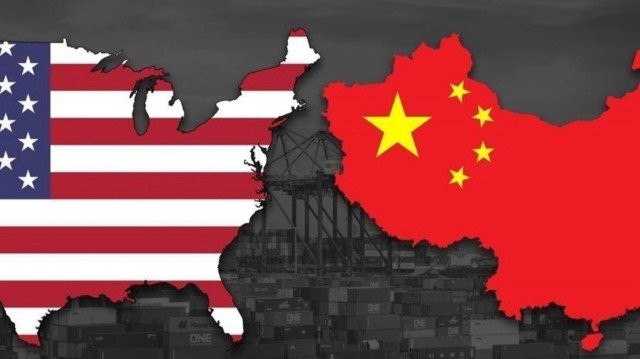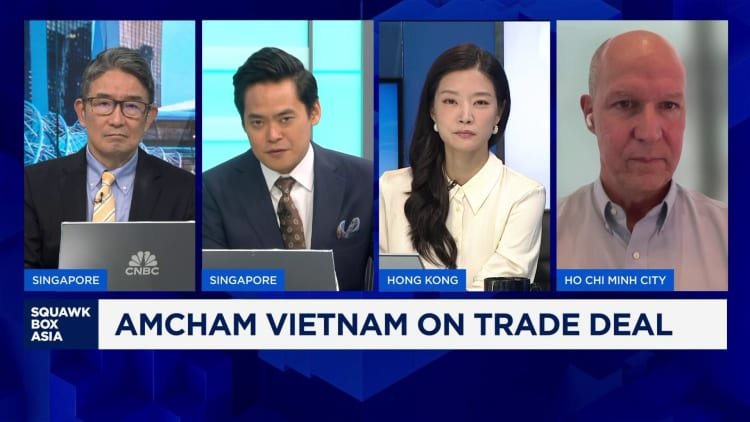(Bloomberg) — President Donald Trump’s administration plans to restrict shipments of AI chips from the likes of Nvidia Corp. (NVDA) to Malaysia and Thailand, part of an effort to crack down on suspected semiconductor smuggling into China.
Most Read from Bloomberg
Invest in Gold
A draft rule from the Commerce Department seeks to prevent China — to which the US has effectively banned sales of Nvidia’s advanced AI processors — from obtaining those components through intermediaries in the two Southeast Asian nations, according to people familiar with the matter. The rule is not yet finalized and could still change, said the people, who requested anonymity to discuss private conversations.
Officials plan to pair the Malaysia and Thailand controls with a formal rescission of global curbs from the so-called AI diffusion rule, the people said. That framework from the end of President Joe Biden’s term drew objections from US allies and tech companies, including Nvidia. Washington would maintain semiconductor restrictions targeting China — imposed in 2022 and ramped up several times since — as well as more than 40 other countries covered by a 2023 measure, which Biden officials designed to address smuggling concerns and increase visibility into key markets.
All told, the regulation would mark the first formal step in Trump’s promised overhaul of his predecessor’s AI diffusion approach — after the Commerce Department said in May that it would supplant that Biden rule with its own “bold, inclusive strategy.” But the draft measure is far from a comprehensive replacement, the people said. It doesn’t answer, for example, questions about security conditions for the use of US chips in overseas data centers — a debate with particularly high stakes for the Middle East. It’s unclear whether Trump officials may ultimately regulate AI chip shipments to a wider swath of countries, beyond the Malaysia and Thailand additions.
The Commerce Department didn’t respond to a request for comment. The agency has offered few specifics about its regulatory vision beyond what Secretary Howard Lutnick told lawmakers last month: The US will “allow our allies to buy AI chips, provided they’re run by an approved American data center operator, and the cloud that touches that data center is an approved American operator,” he said during congressional testimony.
Nvidia, the dominant maker of AI chips, declined to comment, while spokespeople for the Thai and Malaysian governments didn’t respond. Nvidia Chief Executive Officer Jensen Huang has previously said there’s “no evidence” of AI chip diversion, in general remarks that didn’t touch on any particular country. In response to earlier Bloomberg queries about curbs focused on smuggling risks, Thailand said it’s awaiting details, while Malaysia’s Ministry of Investment, Trade and Industry said clear and consistent policies are essential for the tech sector.
Washington officials for years have debated which countries should be able to import American AI chips — and under what conditions. On one hand, the world wants Nvidia hardware, and US policymakers want the world to build AI systems using American technology — before China can offer a compelling alternative. On the other, once those semiconductors leave American and allied shores, US officials worry the chips could somehow make their way to China, or that Chinese AI companies could benefit from remote access to data centers outside the Asian country.
Southeast Asia is a key focus. Companies including Oracle Corp. (ORCL) are investing aggressively in data centers in Malaysia, and trade data shows that chip shipments there have surged in recent months. Under pressure from Washington, Malaysian officials have pledged to closely scrutinize those imports, but the Commerce Department’s draft rule indicates the US still has concerns.
Semiconductor sales to Malaysia also are a focal point of a court case in neighboring Singapore, where prosecutors have charged three men with defrauding customers about the ultimate destination of AI servers — originally shipped from the island nation to Malaysia — that may have contained advanced Nvidia chips. (Nvidia is not the subject of Singapore’s investigation and has not been accused of any wrongdoing.)
Related: Malaysia Downplays Huawei Deal as US Checks China’s AI Reach
The export curbs on Malaysia and Thailand would include several measures to ease pressure on companies with significant business operations there, people familiar with the matter said. One provision would allow firms headquartered in the US and a few dozen friendly nations to continue shipping AI chips to both countries, without seeking a license, for a few months after the rule is published, people familiar with the matter said.
The license requirements also would still include certain exemptions to prevent supply chain disruptions, the people said. Many semiconductor companies rely on Southeast Asian facilities for crucial manufacturing steps like packaging, the process of encasing chips for use in devices.
—With assistance from Patpicha Tanakasempipat, Michael Shepard and Olivia Solon.
Most Read from Bloomberg Businessweek
©2025 Bloomberg L.P.








